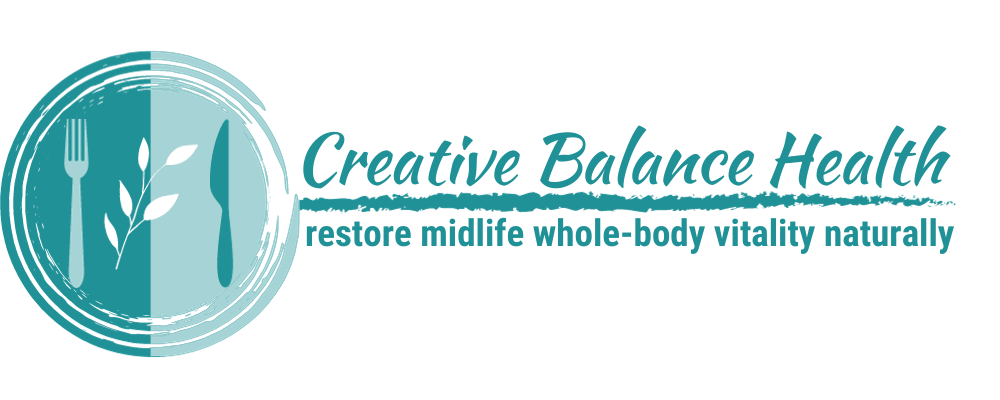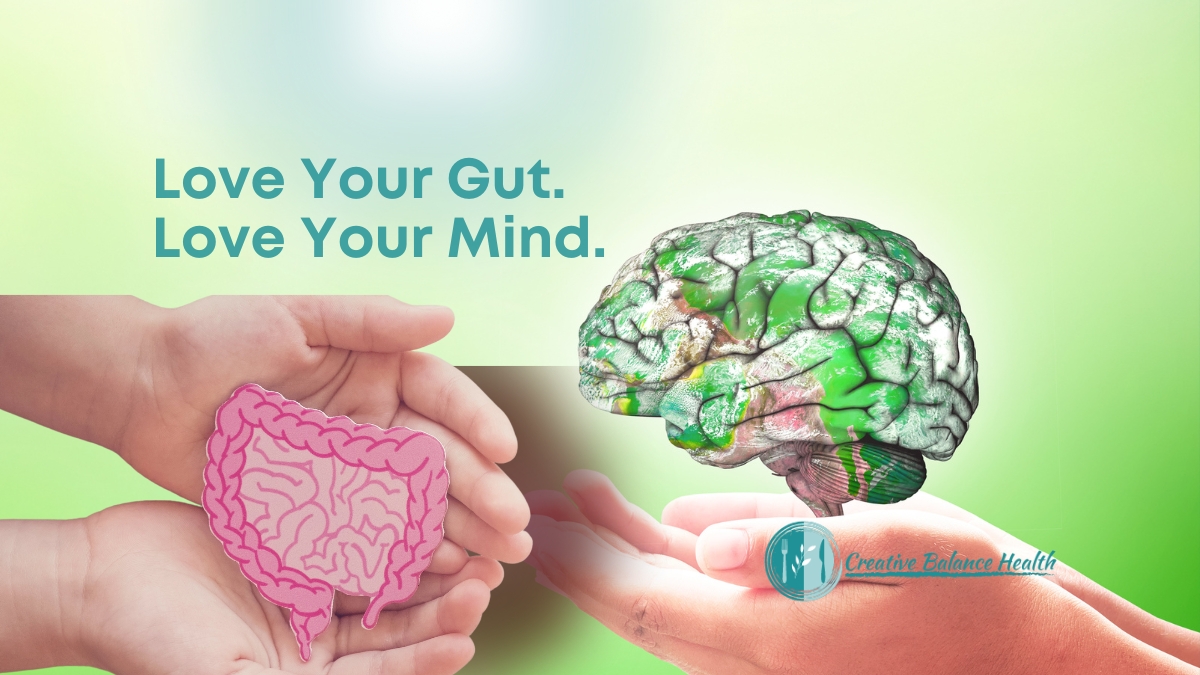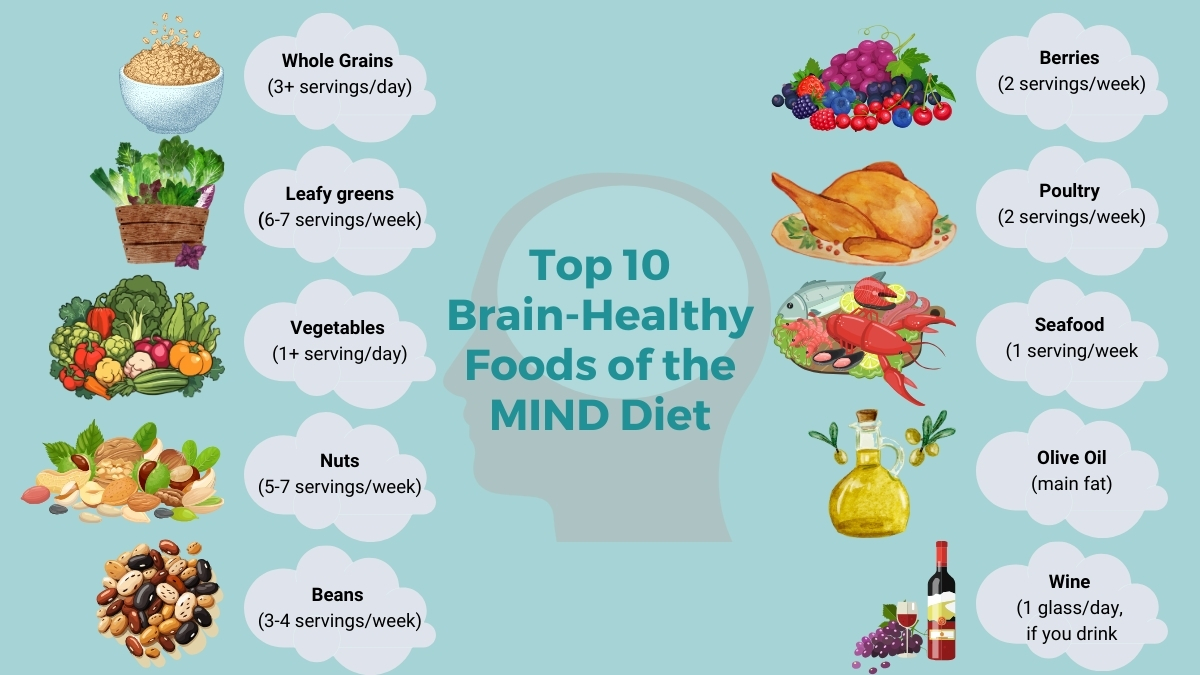Mental health: It’s not all in your head … it’s also in your gut!
New research underscores links between gut microbiota, inflammation, & mental health.
There was a time not too long ago when we didn’t understand—or even realize—the strong link between your mind and your gut. With technological advances developed in the past decade or so, research has exploded in this area. Now the term “gut-brain axis” is widely used in health circles. I am so excited to share with you one of the latest studies that show just how critical your gut health is to your mental health and how this ties into inflammation.
Years ago, when I was advised to stop eating wheat and told I carried both Celiac gene markers, I struggled to heed the advice because I had never experienced the debilitating gastrointestinal problems associated with Celiac disease or gluten intolerance. However, after successfully eliminating all gluten from my diet, whenever I “cheated” or became accidentally “gutened”, I would immediately become foggy-brained and almost pass out from the dizzying symptoms. When I eventually became certified as a Functional Diagnostic Nutrition Practioner®, through access to the right food sensitivity lab tests (Cyrex Array #3 and Wheat Zoomer™), I finally understood that the particular protein peptides of wheat and gluten I had a very elevated inflammatory response to impacted my brain, while the peptides that would negatively impact my gut were in the green and no problem.


Your gut is composed of not only the cells of your esophagus, stomach, and intestines but also trillions of microbes from hundreds of different species that live there. Yes, there are many types of “friendly” bacteria, viruses, and yeasts that happily reside inside you and contribute to your health. And everybody’s microbiome is different. Factors that contribute to each person’s unique microbiome include genetics, environment, medications, and food. There isn’t just one “healthy” microbiome (which makes this type of research even more challenging).
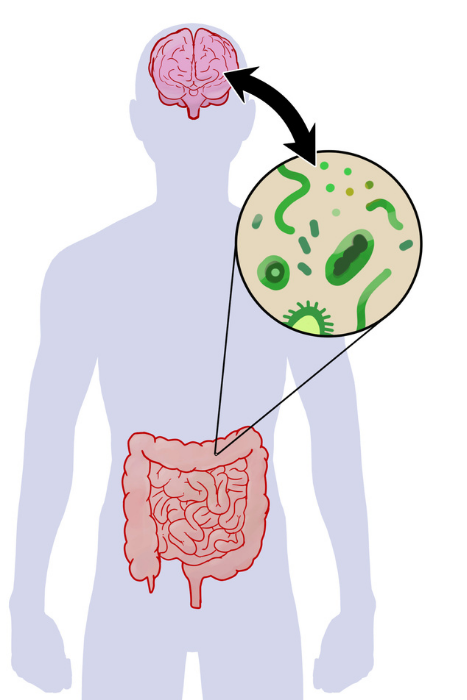
Having a healthy number, variety, and balance of friendly gut microbes is key because they each play different roles in your health. Some microbes make amino acids for proteins or they make vitamins B12 or K. Other microbes stimulate your immune system, break down toxic compounds, or ferment fiber to produce the anti-inflammatory fatty acid called butyrate. A healthy gut microbiome also provides protection from harmful organisms that may be inadvertently consumed in contaminated food or water.
A clearer picture of the effect that gut microbes have on your mental health
Now, more and more evidence is putting together a clearer picture of the effect that gut microbes have on your mental health. A recent study published in the medical journal JAMA Psychiatry collected data from 59 previous studies that compared the gut microbiomes of people with and without certain mental health diagnoses. They then conducted a “meta-analysis” where they pooled the data together and analyzed it further. The question the researchers were aiming to answer was: “Do psychiatric disorders present with distinct or shared gut microbial alterations?” In other words, they were looking to see if they could find a pattern between which gut microbes were associated with which mental health issues.
One of the results they found was that people with mental health challenges tend to have higher levels of microbes that produce pro-inflammatory compounds and lower levels of those that promote gut health and produce anti-inflammatory compounds like butyrate. This is a ”lose-lose” situation that’s associated with mental health conditions. Ideally, you want higher levels of microbes that promote gut health and lower inflammation.
While this is extremely interesting research and very relevant to many people, it’s still a bit too early to use microbiome tests as a tool to prevent, diagnose, or treat mental health conditions.
The science is still progressing and hopefully, we will soon see the ability to clinically test or alter the gut microbiota to improve mental health.
“While it is still too early to recommend specific interventions, it’s clear that clinicians need to place a greater awareness of gut health when considering the treatment of certain psychiatric disorders,”
says one of the study’s authors.
Disclaimer: If you have any concerns about your mental health, please see a qualified mental health professional.

While we can’t directly use the results of this study to improve mental health at this time, it is another piece of the puzzle that underscores how vitally important a healthy gut microbiome is.
There are some things you can do today to nurture a healthy microbiome in your gut:
- Certain probiotic supplements may help restore balance to the gut microbiome if it is affected by diarrhea or the use of antibiotics (MegaSporeBiotic is one of my favorites)
- Probiotic foods that contain live cultures include fermented foods such as yogurt, kefir, sauerkraut, miso, and kimchi
- A high-fiber diet with more vegetables, fruit, beans, and whole grains can increase the amount of gut-friendly butyrate that is produced by the microbiome (these foods are often referred to as prebiotics); increase your fiber intake gradually to reduce the onset of gas and bloating
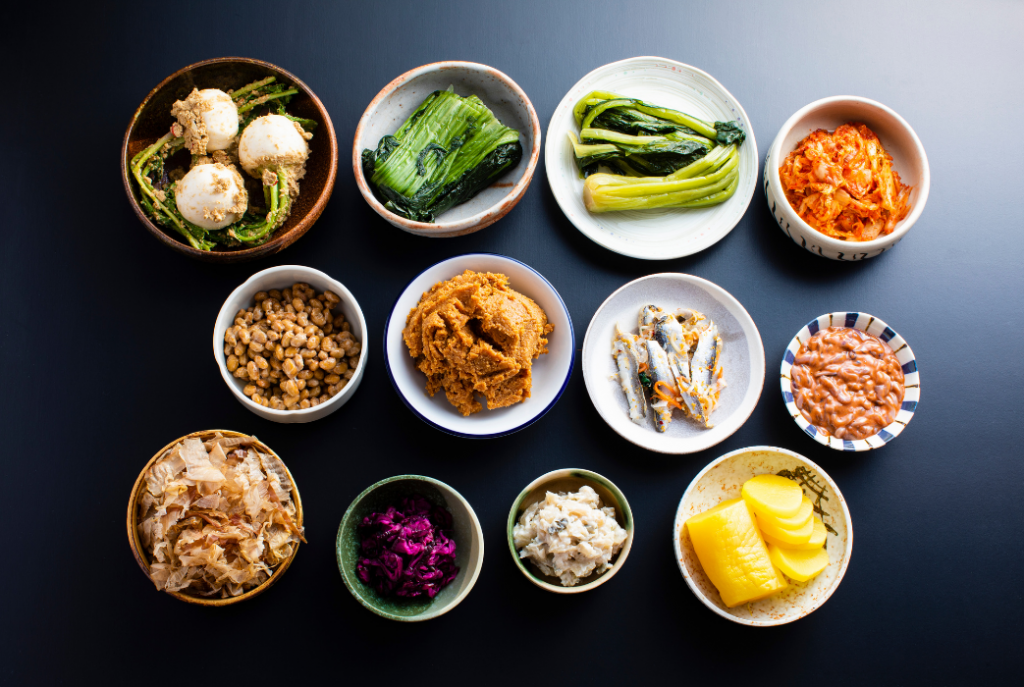
It is important to note that some conditions such as small intestinal bacteria overgrowth (SIBO) or fungal infections like Candida can be made worse when the wrong probiotic strains or fermented foods are consumed. That’s why the Gastrointestinal Microbial Assay Plus (GI-MAP) diagnostic lab test is one of the foundational clinical lab tests I provide access to for my clients to assess the health of their gut, check for any pathogens or inflammation, because so many hidden stressors to one’s mental and emotional state as well as their energy, weight, and digestive health start in the gut. In addition, I am very careful to personally inspect every supplement and food my clients use to make sure they are made aware of any potentially harmful ingredients or contraindications. Always check with your doctor before making any dietary or lifestyle changes, including supplements.
Get help and resources
If you are struggling with poor energy and focus, stubborn weight, or digestive health issues, I can help. Set up a free Health Discovery Session with me virtually, or in my Mercer Island, Washington office, to learn more.

References:
- Nikolova, V. L., Smith, M., Hall, L. J., Cleare, A. J., Stone, J. M., & Young, A. H. (2021). Perturbations in Gut Microbiota Composition in Psychiatric Disorders: A Review and Meta-analysis. JAMA psychiatry, e212573. Advance online publication. https://doi.org/10.1001/jamapsychiatry.2021.2573 https://jamanetwork.com/journals/jamapsychiatry/article-abstract/2784328
- https://www.medscape.com/viewarticle/959154
- https://www.niddk.nih.gov/health-information/digestive-diseases/digestive-system-how-it-works
- https://www.hsph.harvard.edu/nutritionsource/microbiome/
- https://www.nature.com/articles/d41586-020-00194-2
- https://www.nature.com/articles/d41586-020-00193-3
